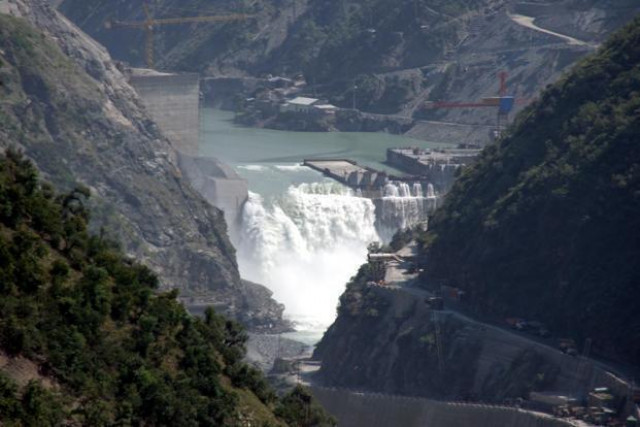Pakistan to resume talks with World Bank on India water dispute
Delegation led by Indus Water Commissioner Syed Mehr Ali Shah departs for five-day US visit

Representational image. PHOTO: REUTERS
As per reports, the delegation led by Indus Water Commissioner Syed Mehr Ali Shah will press for measures for the complete implementation of the 1960 treaty.
The Pakistani side will be in the US for five days and will also take up its demand for the establishment of a Court of Arbitration to address concerns over the designs of India's two hydroelectric power projects - Kishanganga and Ratle.
India has asked the World Bank to appoint a neutral expert for the same purpose.
The disagreement
Pakistan has raised objections over the construction of the Kishanganga (330 megawatts) and Ratle (850 megawatts) hydroelectric power plants being built by India.
Islamabad maintains that the design features of the two hydroelectric plants contravene the Treaty.
Pakistan asks World Bank to take up Indus Waters Treaty issue
“The plants are on respectively a tributary of the Jhelum and the Chenab Rivers,” says a WB fact sheet. “The Treaty designates these two rivers as well as the Indus as the “Western Rivers” to which Pakistan has unrestricted use. Among other uses, under the Treaty, India is permitted to construct hydroelectric power facilities on these rivers subject to constraints specified in Annexures to the Treaty.”
Breach
In March, soon after tensions between the two nuclear-armed neighbours flared up, New Delhi started impeding the flow of three rivers shared by the two countries.
New Delhi had stopped 0.53 million acre-feet of water from the three eastern rivers flowing into Pakistan. Talks on the lingering water disputes between the longtime rivals were held in August 2018 but ended without any major breakthrough.
The Indus Waters Treaty
It was signed in 1960 after nine years of negotiations between India and Pakistan with the help of the World Bank, which is also a signatory. Seen as one of the most successful international treaties, it has survived frequent tensions, including conflict, and has provided a framework for irrigation and hydropower development for more than half a century.
How the Treaty works:
According to WB, the treaty sets out a mechanism for cooperation and information exchange between the two countries regarding their use of the rivers, known as the Permanent Indus Commission, which has a commissioner from each country.
The treaty also sets forth distinct procedures to handle issues which may arise: “questions” are handled by the Commission; “differences” are to be resolved by a Neutral Expert; and “disputes” are to be referred to a seven-member arbitral tribunal called the “Court of Arbitration.”
As a signatory to the treaty, the World Bank’s role is limited and procedural. In particular, its role in relation to “differences” and “disputes” is limited to the designation of people to fulfill certain roles when requested by either or both of the parties.



















COMMENTS
Comments are moderated and generally will be posted if they are on-topic and not abusive.
For more information, please see our Comments FAQ